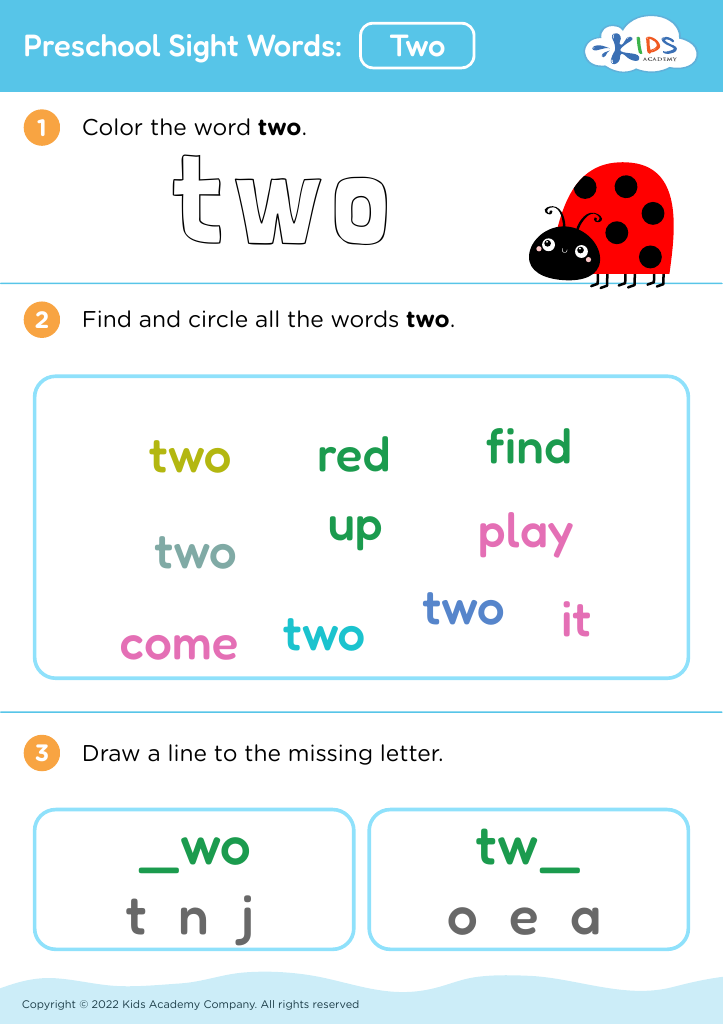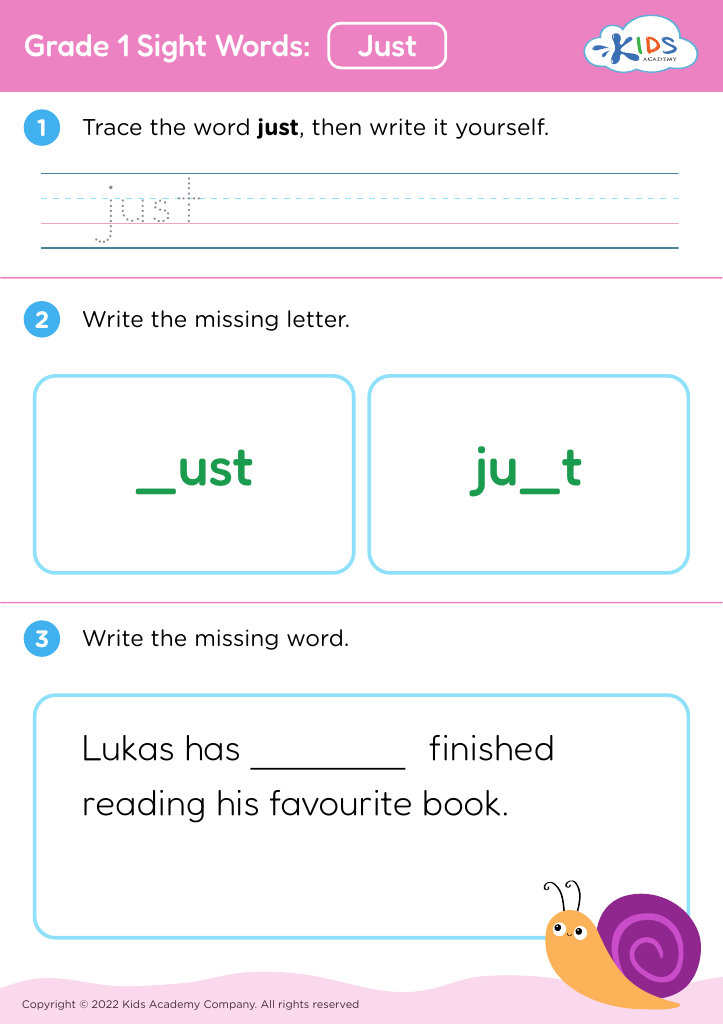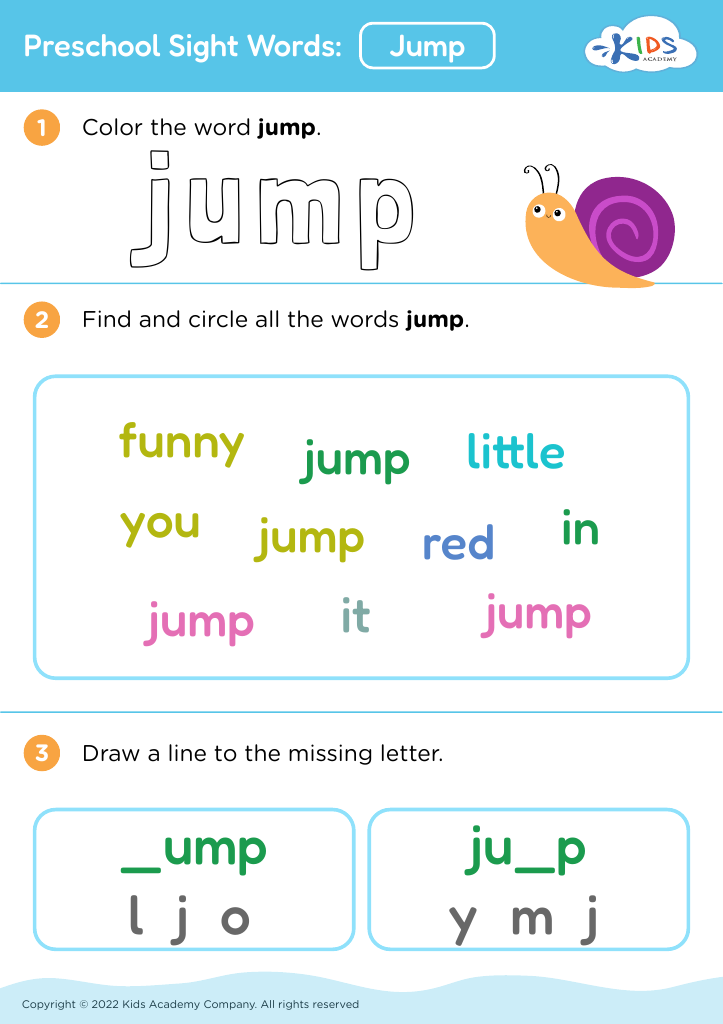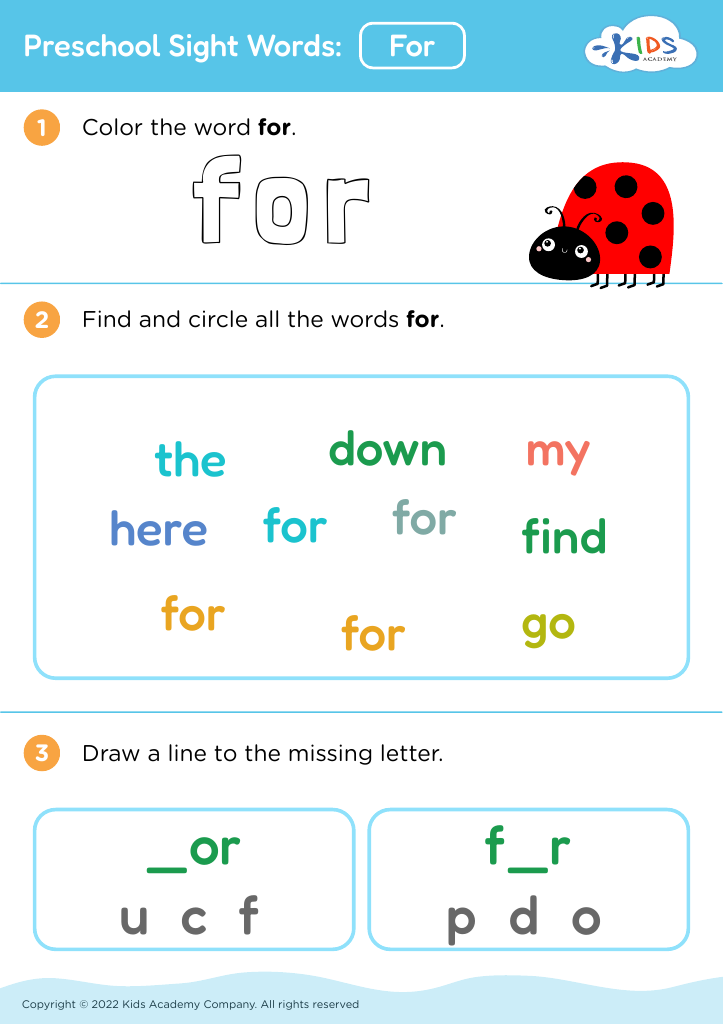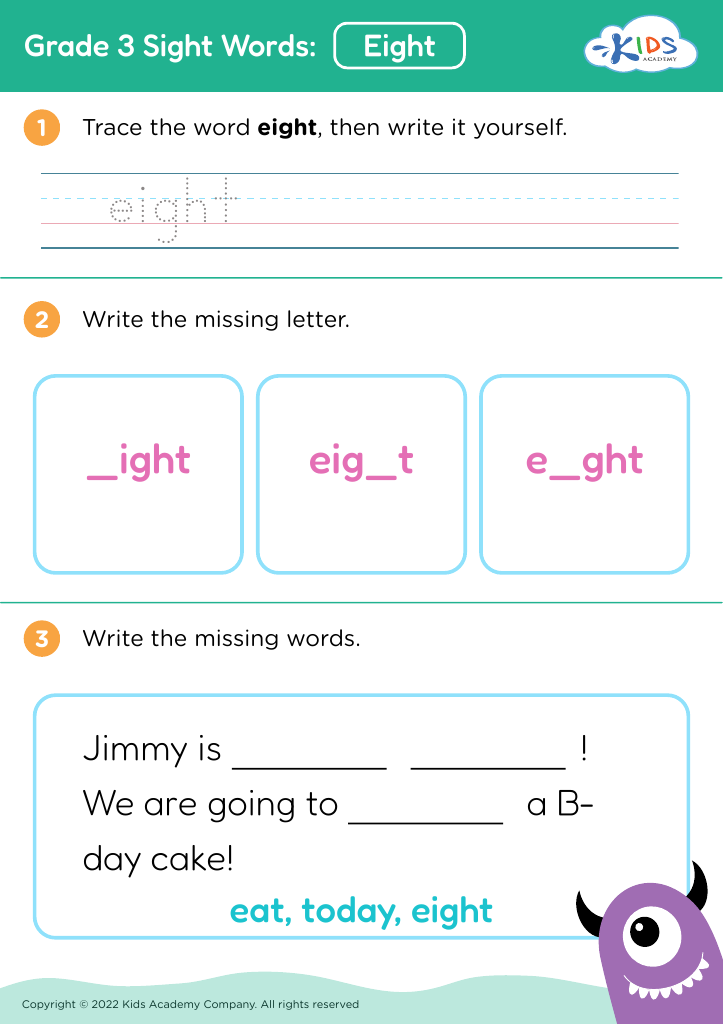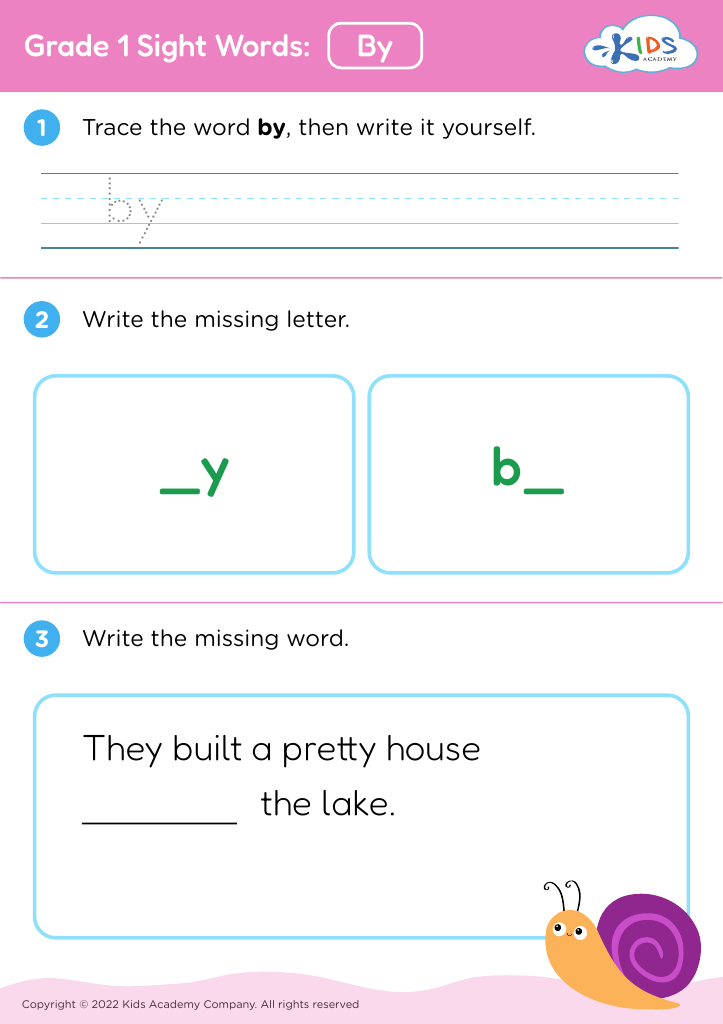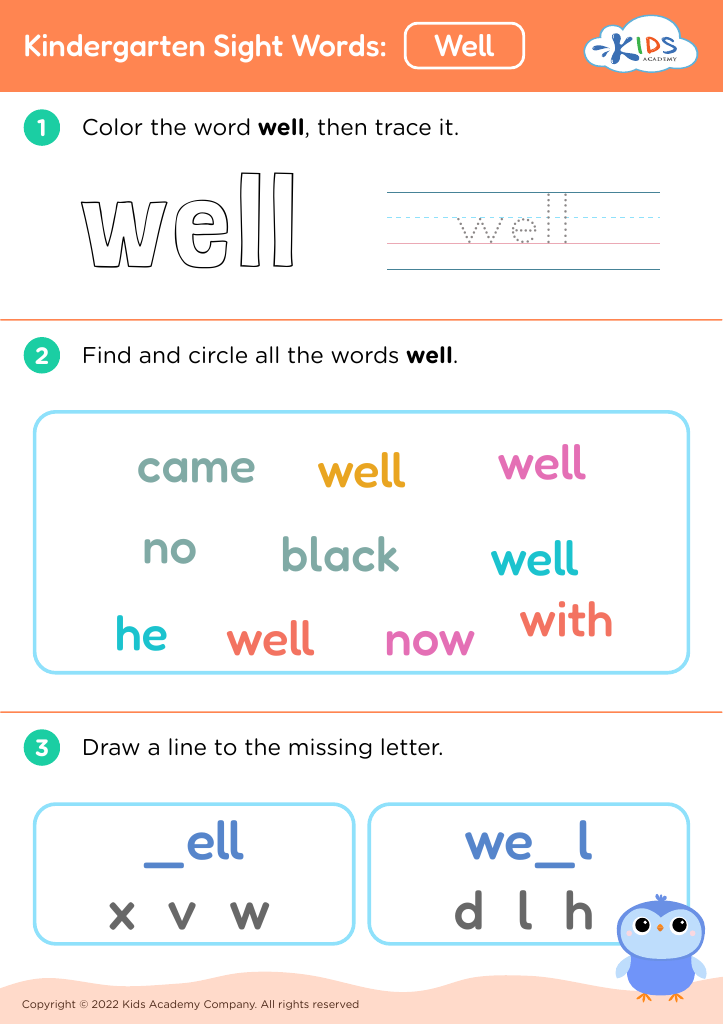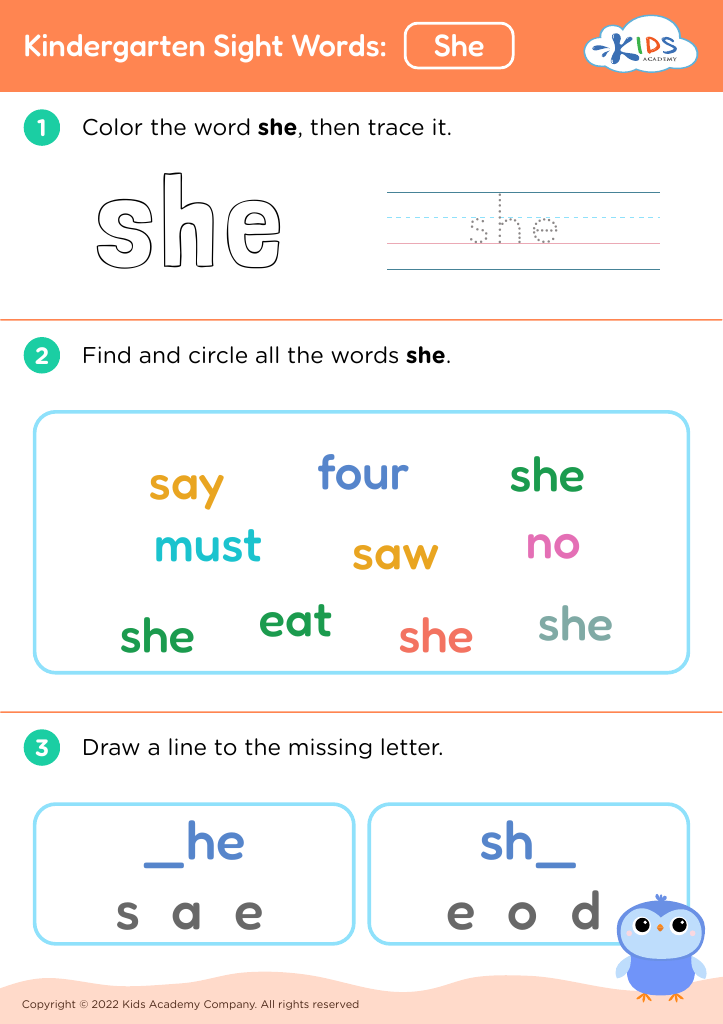Recognizing shapes Reading Worksheets
12 filtered results
-
From - To
Discover our engaging Recognizing Shapes Reading Worksheets, designed to help young learners identify and understand various shapes while developing their reading skills. These worksheets are perfect for early grade students, incorporating fun visuals and interactive activities that make learning enjoyable. Each worksheet focuses on different shapes, providing clear definitions and contexts through relatable examples. Students will practice matching shapes with their names, enhancing both shape recognition and vocabulary. Ideal for classroom or at-home learning, our worksheets align with educational standards to ensure comprehensive skill development. Foster a love for shapes and reading with our thoughtfully crafted resources today!
Recognizing shapes is a foundational skill in early childhood education that significantly contributes to a child's overall development. Parents and teachers should care about this skill because it lays the groundwork for more advanced mathematical concepts. Understanding shapes helps children develop spatial awareness, which is crucial for problem-solving and critical thinking. When children can identify and differentiate between shapes, they acquire the ability to observe, describe, and categorize their surroundings, enhancing their cognitive and language skills.
Moreover, recognizing shapes is a stepping stone to learning geometry, fostering skills that will be essential in later academic pursuits. Activities related to shapes, such as drawing, sorting, or building with blocks, also promote fine motor skills and creativity. Collaborative activities can enhance social skills, as children learn to communicate their thoughts and ideas.
Furthermore, recognizing shapes ties directly into everyday life, making learning relevant. For example, identifying shapes in their environment helps children connect their learning with the real world—cars are rectangles, stop signs are octagons, and pizza slices are triangles. When parents and teachers prioritize shape recognition, they nurture a child's curiosity and encourage a lifelong love of learning, ultimately setting them on a path to academic success.
